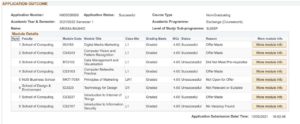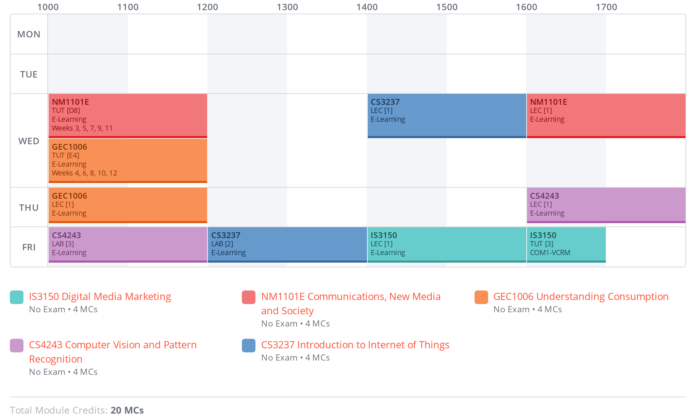Last semester, I was given the opportunity to go on local exchange at NUS. I’ll be sharing the module selection and registration process in this blog post, as well as some tips!
Finding Modules
Compared to SUTD, NUS has a wide selection of modules across the different faculties. SUTD’s Office of International Relations should have a collated list of modules available from the host universities. When selecting modules, here’s some things to take note of:
1. Make sure that the module is available for Non-Graduating (NG) students (students on exchange)
2. Make sure that the module is available for the semester that you are going on exchange for (Sept – Dec is Semester 1, Jan – April is Semester 2)
3. Be open-minded and explore modules outside of your faculty! i.e I am in CSD but I took some modules from Information Systems 🙂
After looking through the list, head over to nusmods.com/modules to read through the module syllabus, workload distribution and schedule. A bonus tip would be to check if the modules have exams!
For most engineering / computer science modules, there would be a lecture + tutorial / lab session every week.
For HASS equivalent modules, there would be a weekly lecture, and bi-weekly tutorials.
A great feature in NUS Mods is that you can add the module you’re interested in to your timetable to plan your class schedule. This was mine:

As HASS modules were once every 2 weeks, I planned my timetable such that my HASS tutorials were at the same time on alternate weeks!
Mapping modules back to SUTD
Before selecting your modules, do make sure to prepare the Transfer Credit forms for SUTD. Do also check with your faculty head and HASS head beforehand, to check if the modules you have in mind are pillar or HASS approved.
Another tip when selecting modules would be to check what modules you want to take back in SUTD for the remaining terms! This is important especially if you have a focus track in mind.
Bidding for Modules
The concept of module bidding might seem foreign to SUTD students, but it is crucial in the NUS module selection process. During module registration day, each student would get to rank their modules. It’s not a first come first serve process, so we can do it carefully!
NUS Seniors get the highest priority, along with students that belong to that faculty. This was my ranking and my outcome:

If you did not get enough modules, don’t worry! There’s a few more chances for you to reapply for modules. To increase your chances, you could also email the faculty head to appeal.
Conclusion
The process might be a little long and tedious, but this is a great opportunity for you to study modules of your interest outside of SUTD (and as an added bonus, they are pass / fail). I took the time to choose my modules and really enjoyed learning in NUS. I hope you found this helpful!






























